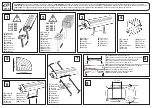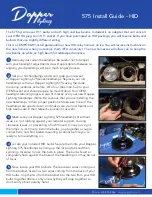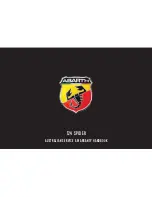
•
Decreased engine coolant concentrations below 40% will
decrease the freeze protection characteristics of the engine
coolant and may cause engine damage.
•
Refer to the chart on the coolant container to ensure the
coolant concentration in your vehicle will provide adequate
protection at the temperatures in which you drive.
Vehicles driven year-round in non-extreme climates should use a 50/50
mixture of engine coolant and distilled water for optimum cooling system
and engine protection.
What you should know about fail-safe cooling
(4.6L V8 engine only)
If the engine coolant supply is depleted, this feature allows the vehicle to
be driven temporarily before incremental component damage is incurred.
The “fail-safe” distance depends on ambient temperatures, vehicle load
and terrain.
Fail-safe cooling and engine oil overheat mode (4.6L V8 only)
If the engine coolant and/or engine oil overheat, the vehicle’s fail-safe
modes will reduce engine power to limit engine damage, even with a
total loss of coolant. The vehicle’s range and/or speed will be reduced,
depending on vehicle load, terrain, and outside temperatures.
The instrument cluster provides warnings for each mode.
•
Fail-Safe Cooling Mode:
The
(Service engine
soon),
(Engine oil pressure), and
(Engine coolant
temperature) indicators will be on.
Along with these warning indicators, the engine coolant temperature
gauge will read in the Hot (H) area.
If the engine coolant reaches even hotter temperatures, fail-safe
cooling mode limits engine power more and disables air conditioning.
The engine will switch to alternating cylinder operation to help cool
the engine. The engine will run rough in this mode.
If continued operation increases the engine coolant temperature to a
critical range, the engine will shut down. Steering and braking effort
will increase. Once engine coolant temperature cools, the engine can
be restarted.
2009 07+ Explorer Sport Trac
(esp)
Owners Guide, 2nd Printing
USA
(fus)
Maintenance and Specifications
320
















































